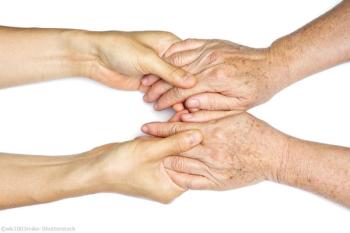
Constipation in the Cancer Patient
When you have cancer, constipation is more likely to occur because of the cancer itself or as a side effect of treatment. If you have constipation, your doctor or nurse can help you to treat it and prevent it in the future.
When you have cancer, constipation is more likely to occur because of the cancer itself or as a side effect of treatment. If you have constipation, your doctor or nurse can help you to treat it and prevent it in the future.
What does constipation feel like?
• Bowel movements are painful and difficult, and stool is small, hard, and dry
• You must strain to make a bowel movement
• You feel you still need to defecate after passing stool
• You get cramps and stomachache
• You have a lot of gas, and your stomach is bloated
• You may experience leakage of soft stool (that looks like diarrhea)
What is the normal number of bowel movements?
From 3 times a day to 3 times a week is considered normal. It is NOT necessary to have a bowel movement every day. Doctors regard constipation as no bowel movement for 3 days in a row.
What causes constipation?
Constipation is often caused by not getting enough fluids and fiber. Too little physical activity and not going to the bathroom when you feel the urge to can also contribute to constipation. Certain diseases make constipation more likely. In people with cancer, constipation can be caused by chemotherapy drugs and pain medications.
How is constipation treated?
Your doctor will want to treat any medical conditions that might be causing constipation. Laxatives or stool softeners should be used ONLY if your doctor and nurse recommend them. To treat or prevent constipation:
• Drink more fluids; water and juices are best.
• Increase dietary fiber. High-fiber foods include bran, cereals, whole wheat bread, nuts, fresh or dried fruits (prunes, dates, apricots, raisins), raw or cooked vegetables, and pasteurized fruit juices (especially prune). Be sure to talk to your doctor first. Fiber may not be recommended for patients with certain cancers. Also, when you eat more fiber, you need to drink more fluids. Ask your doctor about your fiber and fluid goals.
• Avoid chocolate, cheese, eggs, fatty foods, meat.
• Get as much exercise as you can. Ask your doctor how much and what type of exercise is best.
• Go to the bathroom when you feel the urge to go.
• Have a warm or hot drink (hot lemon water is good) about 30 minutes before the time you usually have a bowel movement.
• Find a private, quiet place to use the bathroom.
Is constipation dangerous?
Constipation that lasts a long time can lead to impaction-hard, dry feces trapped in the rectum that must be removed by a doctor. Severe constipation may indicate bowel obstruction (blockage), a serious condition caused by other medical problems. Hemorrhoids and tears in the skin around the anus also can be caused by constipation.
When to Call the Doctor
• You have not had a bowel movement in 3 days.
• You see blood in your stool.
• You cannot move your bowels within 1–2 days after taking a laxative.
• You have cramps or nonstop vomiting.
Your doctor may ask:
• What are your normal bowel habits?
• When did you last have a bowel movement?
What was it like?
• What is your diet [foods and fluids] like?
• What medications are you taking [including over-the-counter laxatives, enemas, and suppositories]?
A physical examination and your answers to these questions will help your doctor to plan your care.
Print This Article
Newsletter
Stay up to date on recent advances in the multidisciplinary approach to cancer.




































